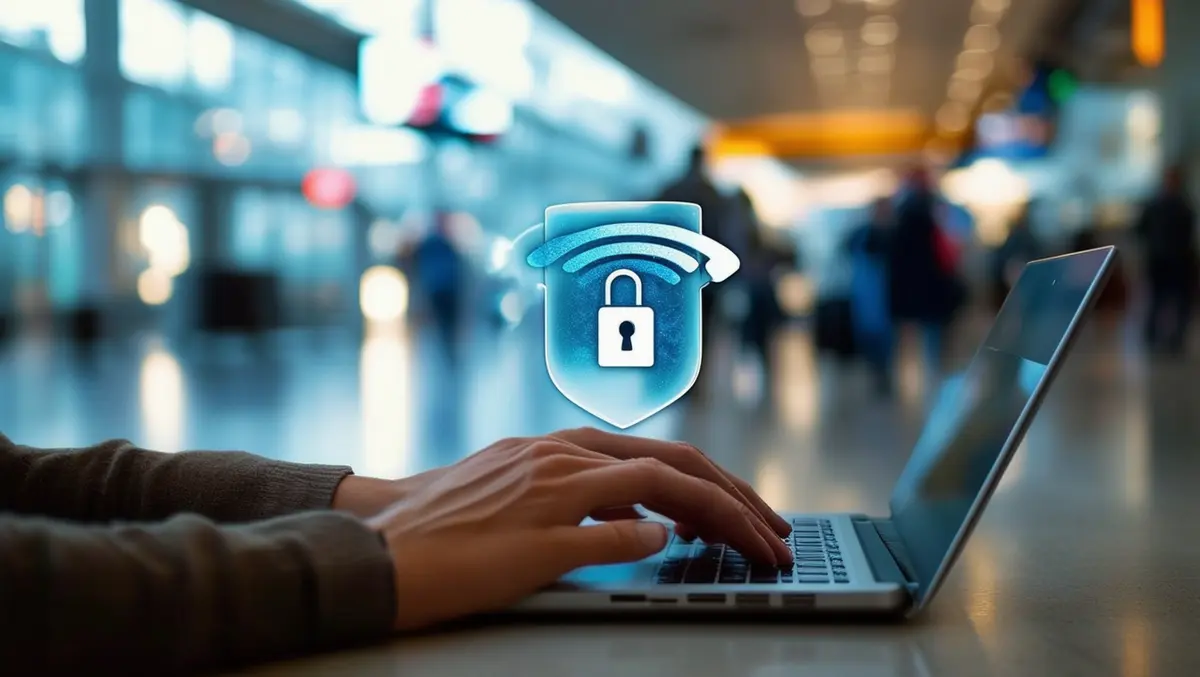
Your travel guide to public Wi-Fi, security and privacy
When you travel, using public Wi-Fi can bring privacy and security risks. Learn how to protect yourself against cybercriminals when you're travelling.
Travel should be a relaxing break. But if you're not careful, you could expose your private email messages, bank account information and online credit card passwords to cybercriminals. Why? Blame it on public Wi-Fi.
Public Wi-Fi is notoriously unsecure. This makes it easy for hackers to spy on you when you're relying on the free public Wi-Fi available in hotel lobbies, coffee shops, shopping centres and airports.
If you're not cautious you might be exposing your most sensitive information to snoops. You might find that a thief has accessed your savings account or run up charges on your credit card, all because that criminal was able to spy on you as you typed in the passwords to these sites.
What are public Wi-Fi risks?
Why is public Wi-Fi so risky? It's not nearly as secure as the Wi-Fi you use at home or the online network provided by your employer.
That's mostly because public Wi-Fi doesn't require authentication to establish a network connection. You might not even have to enter a password to log onto public Wi-Fi at airports, hotels, coffee shops, amusement parks and retailers.
This makes public Wi-Fi convenient for consumers. It's easy to log on while waiting for your flight, relaxing in your hotel lobby, or sipping on a latte in your favourite cafe.
This ease of access, though, is enticing for hackers, making it easy for them to spy on your online activity. They can read the email messages you are sending, the forums you are visiting and worst of all, the passwords you type while logging onto your online credit card portals and bank accounts.
1. Use a VPN
A virtual private network, better known as a VPN, can protect you when you are using public Wi-Fi. In fact, it's one of the best tools you can use when browsing with public Wi-Fi.
When using a VPN, such as Norton Ultra VPN, you log onto the internet by first connecting to the server of the company providing your VPN service. The data you send and receive while browsing the internet is sent through a type of tunnel that encrypts it, meaning that hackers can't see what sites you visit, files you download, or email messages that you send. A VPN will also keep your keystrokes private, so that hackers won't be able to decipher any passwords you use to log onto websites.
This makes a VPN a key tool when you need to use public Wi-Fi. A strong VPN eliminates much of the danger of browsing online with public Wi-Fi. With Norton's latest VPN lineup, you can choose the right plan to protect you and your family while travelling.
2. Be careful with the sites you visit
Never visit key financial sites when using public Wi-Fi. You should not check your bank account balances or pay your credit card bill online when using the public Wi-Fi offered by your hotel, an airport, or shopping centre. You don't want to expose this information to hackers.
Instead, use public Wi-Fi for safer browsing. Checking the weather, finding directions to the nearest cultural site, or reading the news are all safe activities when using public Wi-Fi. If a hacker intercepts this activity? There's little damage that the cybercriminal can do with it.
3. Only visit secure websites
If you do use public Wi-Fi to surf the internet, only visit sites with URLs that start with "HTTPS" and avoid those with URLS starting with "HTTP."
Why? The "S" in "HTTPS" stands for "secure." This mean that the data on that website is encrypted, making it more difficult for hackers to access.
4. Select the most secure setting on your mobile devices
Before taking your trip, visit the "Settings" page of your mobile devices. Turn off any features that automatically connect your devices to available Wi-Fi networks.
This will give you more control over when your devices are logged onto the internet.
5. Use many unique, complex passwords
It's tempting to use the same password at different sites. But resist this urge. If you don't, you face risks.
What if a hacker cracks the password to one of your accounts while you're travelling? If you are using that same password at several other accounts, that hacker can use it to access them, too.
Depending on the password that hackers have stolen, this can leave you with a lot of financial pain as the same hacker runs up your credit card bills, orders products in your name from online shopping sites, and taps your bank accounts.
6. Don't forget to log out
When you're done visiting a website, log out. You should never stay permanently logged onto accounts when you're done with them. But this is especially risky when you're travelling and using public Wi-Fi.
The bottom line on public Wi-Fi and Travel
Public Wi-Fi is convenient, especially when you're travelling. But this service also comes with risks. While the tips listed above can help keep your browsing activity private, the smartest move is to avoid using public Wi-Fi for any financial tasks involving your money or health records.
Instead, use public Wi-Fi to read the reviews of the new restaurant in town, scan the weather for possible thunderstorms, or find out where the best latte is served. This type of online activity won't cause you any financial pain even if a cybercriminal is spying on you. Being smart about public Wi-Fi can help make sure that your trip is a happy and relaxing one.

